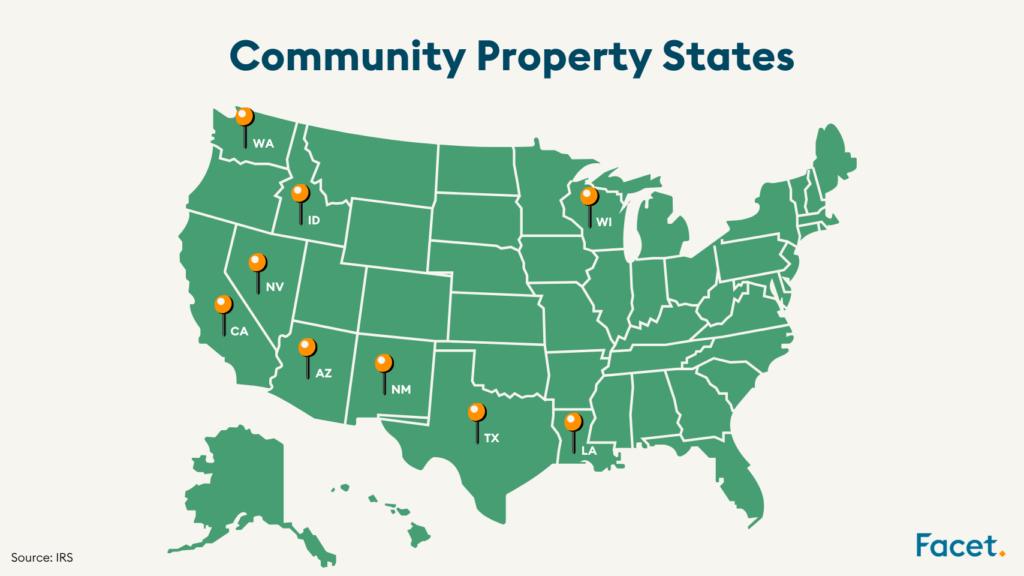

Entering a marriage is an exciting milestone filled with joy and anticipation.
Amidst the wedding preparations, however, addressing the practical aspects of your future life together is vital.
A crucial yet often overlooked conversation to have with your partner is the topic of prenuptial agreements.
By understanding the ins and outs of prenups, couples can pave the way for a secure and harmonious future.
This blog post will provide clarity and guidance on prenuptial agreements—equipping you with the knowledge you need to make informed decisions and foster trust in your relationship.

A prenuptial agreement, or a premarital agreement, is a legally binding contract between two individuals who plan to marry. In essence, it’s a contract that outlines the division of assets, debts, and responsibilities in the event of a dissolved marriage.
Prenups are designed to provide clarity and protection for both parties, ensuring a fair and equitable resolution in case of divorce or separation. With the correct information and guidance, couples may want to tailor a prenup to their unique situation.
State laws govern prenuptial agreements and must be executed correctly to be enforceable. This means both parties should have legal representation , ideally from separate attorneys, to ensure their rights are protected and the agreement is legally binding.
It’s important to note that some items cannot be included in a prenuptial agreement, such as child support, child custody matters, or personal issues like the division of housework. Confidentiality clauses can be included in prenups to maintain privacy and protect sensitive information.
Given the variation in state laws, it's advisable to consult a family law attorney knowledgeable in your state’s specific regulations. They can help you navigate the legal requirements and ensure your prenup is valid and enforceable. Additionally, your attorney can assist in addressing potential conflicts that may arise from different state laws or if each party has their own prenuptial agreement.
Despite perceptions of prenuptial agreements as unromantic or pessimistic, they possess a multitude of benefits extending beyond mere asset protection.
Prenups can help couples manage debt , ensuring that each party is responsible for their own financial obligations. This can be particularly important for couples with significant student loans, credit card debt , or other financial liabilities.
Another significant advantage of prenuptial agreements is the fostering of open communication about finances . Discussing a prenup encourages couples to be transparent about their financial situation, goals, and expectations, ultimately strengthening the foundation of trust and understanding in their relationship.
Both partners can get a prenup, ensuring a secure financial future through a well-crafted agreement. To accomplish this, first consult a legal professional to see how much a prenup will cost.

It’s best to consider several key factors before establishing a prenuptial agreement. These include each partner’s financial stability, future objectives, and the level of trust and communication in the relationship.
Taking the time to evaluate these aspects will ensure that your prenup is comprehensive, fair, and tailored to your unique circumstances.
When evaluating financial stability for a prenuptial agreement, assessing each partner’s income, property ownership, financial interests, and the division of assets and liabilities is crucial. This includes considering premarital assets, inheritances, gifts, retirement funds, and outstanding debts.
A thorough examination of your financial situation allows for the creation of a balanced agreement that protects both parties’ financial interests.
Debt management is a critical aspect of financial stability in prenuptial agreements. Premarital debts (debts acquired before marriage) and any shared marital debts should all be taken into account. Through prenuptial agreements, both partners can be safeguarded from assuming the other’s debt, ensuring financial stability while adhering to community property rules .
Contemplating future plans and objectives is a significant part of drafting a prenuptial agreement. This includes potential career changes , business ventures, and acquiring future assets. A prenup can help safeguard these future endeavors by:
When addressing potential career changes, it’s crucial to consider how assets will be divided and to update the agreement as financial situations and career trajectories evolve. This ensures that the prenuptial agreement remains fair and relevant throughout the marriage, providing a solid foundation for a secure financial future.
Successful prenup negotiations hinge on the following:
By fostering an environment of transparency and understanding, couples can navigate the complexities of prenuptial agreements and the implications of living in a community property state with confidence and ease.
It’s important to remember that discussing a prenup doesn’t indicate a lack of trust in the relationship. On the contrary, these conversations can strengthen a bond by encouraging open dialogue about financial expectations and responsibilities. A well-crafted prenup can provide peace of mind, knowing that both partners’ financial interests are protected.

Asset division, alimony provisions, and debt management are key aspects that a fair and comprehensive prenuptial agreement should encompass. By thoroughly exploring these areas and seeking professional guidance, couples can ensure that their prenup provides the necessary protection and clarity for a secure financial future.
In a prenuptial agreement, assets are typically classified as marital or separate property. Assets acquired during the marriage, considered marital property, are generally subject to division in a divorce.
Separate property, however, includes assets brought into the marriage and is typically not subject to division . The value of marital assets in a prenuptial agreement is determined by evaluating each asset’s fair market value, including financial assets, intangible assets, and personal property.
It’s essential to explicitly specify the division of assets in the event of a divorce to ensure that the prenuptial agreement is clear and enforceable. By outlining how assets will be divided, couples can avoid potential disputes and complications down the line.
Establishing alimony terms in a prenuptial agreement is crucial for ensuring financial security and fairness in the event of a divorce.
Alimony, also known as spousal support, refers to the financial support that one spouse may be obligated to provide to the other spouse after a divorce or separation. Prenuptial agreements can determine the amount and duration of alimony payments, helping to prevent potential conflicts and financial hardships.
It’s important to note that alimony provisions in a prenup can be altered in writing to reflect any changes in circumstances. By staying up-to-date with each partner’s financial situation, couples can ensure their prenup remains fair and equitable throughout the marriage.
Debt management is an essential aspect of prenuptial agreements, as it dictates how debts will be managed during the marriage and in the event of a divorce. A prenup can protect both parties by:

Despite their many benefits, prenuptial agreements are often misunderstood and surrounded by misconceptions. Some of the most common misconceptions include:
Dispelling these myths empowers couples to make informed decisions about the suitability of a prenup for their unique circumstances.
One common misconception is that prenuptial agreements are only for wealthy couples. However, prenups can benefit couples of all financial backgrounds by providing clarity and protection in the event of a divorce or separation.
By outlining the division of assets, debts, and responsibilities, a prenup can help prevent disputes and ensure a fair and equitable outcome for both partners.
In addition to asset protection, prenups can help couples manage debt and foster open communication about finances. These benefits make prenuptial agreements a valuable tool for couples at all income levels.
Another misconception is that prenuptial agreements indicate a lack of trust in the relationship. In reality, prenups can foster trust by encouraging open communication about finances and providing peace of mind that both partners’ financial interests are protected.
Discussing a prenup can actually strengthen a couple’s relationship by promoting transparency and understanding in financial matters.
The belief that prenuptial agreements are set in stone and cannot be modified or revoked is another common misconception. Prenups can be modified or revoked after marriage with the mutual consent of both parties.
It’s important to consult with legal professionals to understand your jurisdiction’s specific laws and requirements, as state laws may vary. By staying informed and adaptable, couples can ensure that their prenuptial agreement remains:
Throughout the marriage, either party may face challenges and obstacles that require understanding and cooperation, especially when a previous marriage is involved.
Although the prospect of discussing prenuptial agreements with your partner may appear intimidating, the conversation need not be challenging.
By following a few simple tips, you can navigate the discussion with ease and ensure a positive outcome for both parties. These tips include choosing the right timing and setting, focusing on mutual benefits, and seeking professional guidance.
Selecting an appropriate timing and setting for the prenup conversation is paramount. It’s best to initiate the discussion in a comfortable and relaxed environment well before the wedding date. This gives both partners ample time to consider the agreement and seek legal counsel if necessary.
Avoid bringing up the topic during times of stress or when emotions are running high. Instead, choose a moment when both partners are calm and receptive to discussing important matters. By creating a supportive atmosphere, couples can have a productive conversation about their financial future.
When discussing a prenuptial agreement with your partner, it’s important to emphasize the benefits for both parties. This includes financial security, protection of assets, and peace of mind, knowing that your financial interests are safeguarded.
By focusing on the mutual advantages, couples can approach the conversation with a positive attitude and a spirit of collaboration. This mindset can help alleviate potential concerns or apprehension about the prenup and foster a stronger bond between partners.
To guarantee a fair and enforceable prenuptial agreement, consultation with legal professionals is typically necessary. A family law attorney can help you navigate the legal requirements, draft the agreement, and represent your interests throughout the process.
It’s crucial for both partners to have their own legal representation to ensure that their rights are protected, and the agreement is legally binding. By seeking professional guidance, couples can be confident that their prenup is tailored to their unique needs and circumstances, providing a solid foundation for a secure financial future.
Prenuptial agreements are valuable tools for couples of all financial backgrounds. By providing clarity and protection in the event of a divorce or separation, prenups can foster trust, open communication, and a strong foundation for marriage.
By understanding the legal aspects, benefits, and misconceptions surrounding prenups and considering key factors such as financial stability, future plans, and trust, couples can craft a fair and comprehensive agreement that meets their unique needs.
With the right approach and professional guidance, discussing a prenup with your partner can be a positive and empowering experience, setting the stage for a prosperous and harmonious future together.
Given that money is the leading cause of marital friction, having a prenuptial agreement in place is a wise choice to help protect both spouses from potential financial disagreements during their marriage.
Prenups can create a power imbalance between spouses, making it easier for the wealthier partner to leave and creating an unfair sense of being trapped in the less-wealthy partner. This is why people are often against prenups.
A prenup, or prenuptial agreement, is a legal document two people sign before they get married. It typically lists each person’s assets and debts and outlines how they’ll be handled should the couple divorce. It sets out how assets will be divided if they divorce or the marriage is dissolved, making it a valuable financial tool.
Prenups are recognized in all 50 US states. However, as each state has its own regulations and rules related to prenups, certain agreements may not be accepted in some states. Therefore, it’s important to research the specific prenup requirements of your state. Prenups are governed by the 1983 Uniform Premarital Agreement Act (UPAA) .
A prenuptial agreement is a contract that two people create before getting married, outlining their individual rights and responsibilities regarding assets and debts should the marriage end in divorce or death.